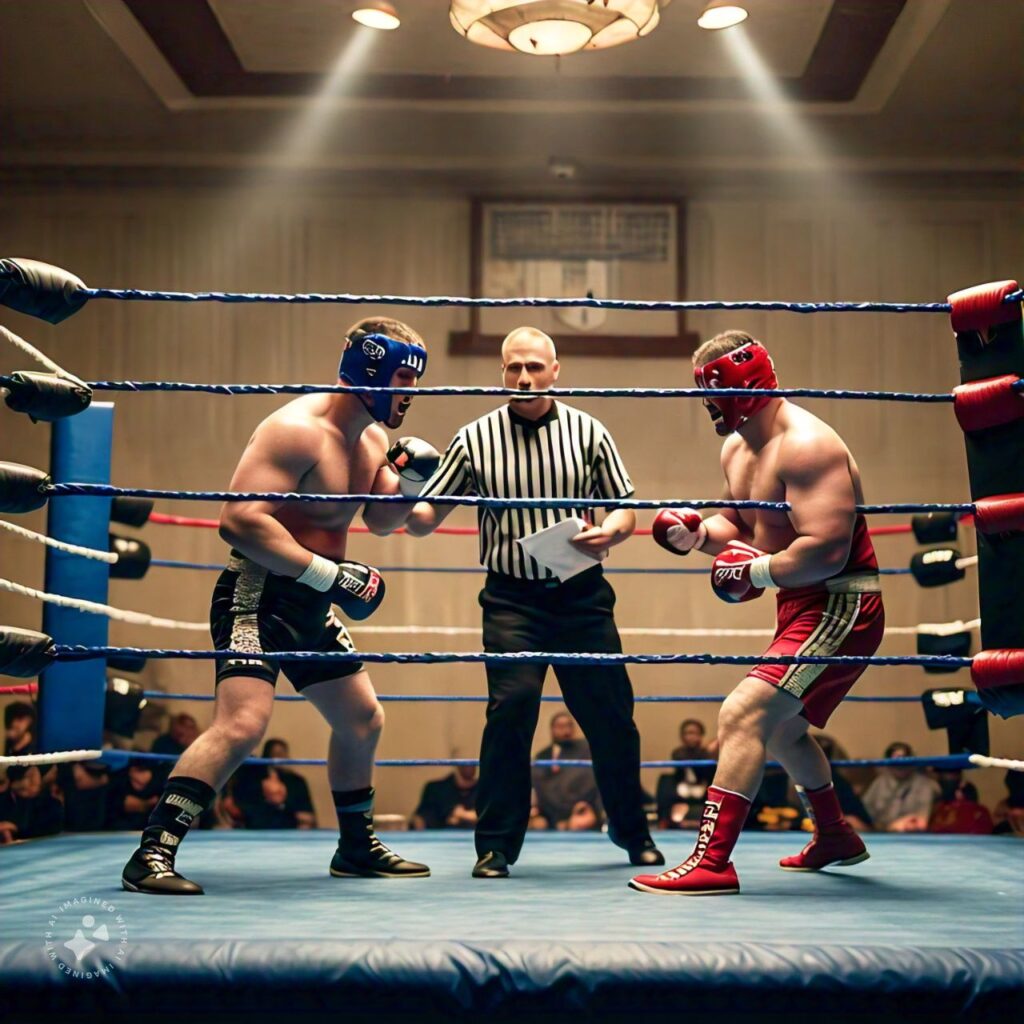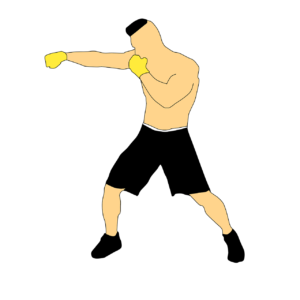Martial arts umpiring is a critical component in the landscape of competitive martial arts, ensuring that matches are conducted with fairness, integrity, and safety.
Umpires play a pivotal role in the adjudication of competitions, making crucial decisions that affect the outcome of matches.
Their presence is essential in maintaining the sport’s credibility and upholding the principles of fair play.
Various martial arts disciplines, including karate, taekwondo, judo, and others, depend on qualified umpires to oversee competitions.
Each discipline has its own unique set of rules and regulations, and umpires must possess a thorough understanding of these to effectively manage the events.
For example, karate umpires need to be proficient in scoring techniques and penalty enforcement, while taekwondo umpires must be adept at recognizing valid points scored through kicks and punches.
In addition to technical knowledge, martial arts umpires must exhibit strong observational skills, impartiality, and the ability to make quick, accurate decisions under pressure.
The role requires a deep understanding of the sport, including its techniques, strategies, and ethical codes.
Umpires are also responsible for ensuring the safety of the competitors, intervening when necessary to prevent injuries and maintaining a controlled environment.
The importance of umpires extends beyond the competition floor.
They serve as role models, exemplifying the values of discipline, respect, and sportsmanship that are integral to martial arts.
Aspiring umpires must undergo rigorous training and certification processes to be recognized as competent officials.
This journey involves theoretical studies, practical assessments, and continuous education to stay updated with evolving rules and practices.
This introductory overview sets the stage for a deeper exploration into the specific steps and requirements to become a martial arts umpire.
Understanding the multifaceted role of umpires highlights the dedication and expertise needed to excel in this vital position within the martial arts community.
Becoming a proficient martial arts umpire necessitates a comprehensive understanding of the rules and regulations specific to the discipline you intend to officiate.
Each martial art form, whether it is karate, taekwondo, judo, or any other, has its own unique set of guidelines that dictate the flow of competition, scoring criteria, and penalty systems.
To ensure fair and accurate adjudication, it is crucial for an umpire to be well-versed in these aspects.
A pivotal component of this knowledge is the official rulebook, which serves as the primary reference for rules and regulations. Familiarizing yourself with this document is indispensable.
It contains detailed explanations of scoring systems — how points are awarded for various techniques, the value of different moves, and what constitutes a scoring action.
Additionally, it outlines penalty guidelines, specifying what actions result in warnings, point deductions, or disqualifications.
Mastery of these elements allows umpires to make informed decisions during competitions, maintaining the integrity of the sport.
To deepen your understanding, engaging in continuous education is highly recommended.
Numerous resources are available for this purpose.
Official rulebooks are often complemented by online courses and seminars that provide interactive learning experiences.
These resources can include video demonstrations of proper techniques, explanations of complex rules, and scenarios that help illustrate common infractions and appropriate penalties.
Attending seminars conducted by experienced referees and officials can also offer valuable insights and real-world examples, enhancing your practical knowledge.
Moreover, keeping abreast of any updates or changes to the rules is essential.
Martial arts governing bodies periodically revise rules to improve the sport’s safety, fairness, and competitiveness.
Staying updated ensures that your officiating remains relevant and aligns with the current standards.
In sum, a thorough understanding of the rules and regulations is the bedrock of effective martial arts umpiring.
By leveraging comprehensive rulebooks, utilizing educational resources, and staying informed about rule updates, aspirants can develop the expertise necessary to uphold the highest standards of competition.

Required Qualifications and Certifications
Becoming a martial arts umpiring for competitive events necessitates a specific set of qualifications and certifications to ensure that one is adequately equipped to uphold the integrity of the sport.
To begin with, prospective umpires are generally required to meet a minimum age criterion, often set at 18 years old, to ensure a level of maturity and responsibility.
Additionally, prior experience in martial arts is typically essential.
This experience provides a foundational understanding of the rules, techniques, and the physical and mental demands of the sport.
Beyond age and experience, aspiring martial arts umpires must obtain specific certifications offered by recognized martial arts organizations.
These certifications validate an umpire’s knowledge and competence in officiating martial arts competitions.
The certification process usually involves both theoretical and practical components.
Candidates must pass written exams that test their understanding of the rules and regulations governing the sport.
Furthermore, practical assessments evaluate their ability to apply this knowledge in real-time during matches.
Prominent martial arts organizations, such as the International Martial Arts Federation (IMAF) and World Karate Federation (WKF), offer umpiring certifications that are widely recognized.
These organizations provide structured training programs that cover various aspects of officiating, including rule interpretation, scoring, and handling disputes.
Enrolling in these programs is a critical step for anyone serious about pursuing a career as a martial arts umpire.
Moreover, staying updated with any changes in the requirements and regulations is crucial.
Martial arts is a dynamic field, and rules can evolve based on new findings, trends, or organizational decisions.
Umpires must engage in continuous education and recertification processes to maintain their credentials and remain competent in their roles.
This ongoing commitment to professional development ensures that umpires can officiate matches fairly and consistently, contributing to the sport’s integrity and safety.
To become a proficient martial arts umpire, engaging in comprehensive training and development is indispensable.
This journey begins with enrolling in specialized training programs designed to impart both practical and theoretical knowledge.
These programs are often conducted by reputable martial arts organizations and are geared towards equipping aspiring umpires with the essential skills and understanding required to officiate at various levels of competition.
Workshops and seminars play a crucial role in this developmental phase.
These events offer immersive experiences where trainees can learn from seasoned professionals in the field.
Through hands-on practice sessions, aspiring umpires gain valuable insights into the nuances of rule enforcement, decision-making under pressure, and maintaining fairness and impartiality during matches.
Additionally, these workshops often cover the latest updates in martial arts regulations, ensuring that participants are well-versed with current standards.
Continuous learning is a cornerstone of success in the realm of martial arts umpiring.
The dynamic nature of martial arts means that techniques, strategies, and rules are constantly evolving.
Therefore, staying current with new developments is not just beneficial but essential.
Regularly attending refresher courses and advanced seminars helps umpires stay abreast of these changes, thereby enhancing their competence and credibility.
Moreover, networking with fellow umpires and participating in martial arts communities can provide further growth opportunities.
Engaging in discussions and sharing experiences with peers can offer new perspectives and solutions to common challenges faced during competitions.
This collaborative environment fosters continuous improvement and professional development.
In conclusion, the training and development of martial arts umpires is a multifaceted process that requires dedication and a commitment to lifelong learning.
By participating in structured training programs, workshops, and continuous education, aspiring umpires can cultivate the expertise necessary to excel in their roles and contribute to the integrity of martial arts competitions.
Gaining Experience
Gaining practical experience is crucial for anyone aspiring to become a martial arts umpire for competitions.
Starting at the grassroots level, such as local or amateur competitions, provides a solid foundation.
Engaging with smaller events allows you to familiarize yourself with the dynamics of officiating, the rules of various martial arts disciplines, and the responsibilities of an umpire.
It also offers a less pressured environment to hone your skills and gain confidence.
Networking is an indispensable part of this journey.
Building relationships with other umpires, coaches, and event organizers can open doors to umpiring opportunities.
Attend local martial arts events, workshops, and seminars to meet professionals in the field.
These connections can lead to mentorship opportunities, insider tips on upcoming events, and invaluable advice from seasoned umpires.
Volunteering is another excellent way to gain experience.
Many local competitions rely on volunteers, and offering your time can provide practical exposure to the umpiring role.
Volunteering allows you to observe the competition flow, understand how decisions are made, and see firsthand the challenges that umpires face.
It also demonstrates your commitment and willingness to learn, qualities that are highly regarded in the martial arts community.
Shadowing experience umpires is a highly effective method for learning the intricacies of the role.
By observing a season professional in action, you can learn the nuances of making split-second decisions, managing disputes, and maintaining the integrity of the competition.
Shadowing also allows you to ask questions and receive feedback in real-time, accelerating your learning curve.
In essence, gaining experience as a martial arts umpire involves a combination of officiating at local events, building a network within the martial arts community, volunteering, and shadowing experience professionals.
These steps collectively provide a comprehensive understanding and skill set, essential for progressing to higher levels of competition officiating.
Essential Skills and Traits
Becoming a successful martial arts umpire requires a blend of specific skills and personal traits, each playing a pivotal role in maintaining the integrity and fairness of the competition.
One of the most crucial attributes is strong observational skills.
An umpire must be able to closely monitor the movements and techniques of both competitors, ensuring that all actions comply with the establishes rules.
This involves not just watching but understanding the subtle nuances of various martial arts forms.
Impartiality is another indispensable trait.
An effective umpire must remain unbiased, making decisions base solely on the actions observe and the regulations governing the sport.
This requires a high level of integrity and the ability to set aside personal preferences or external pressures.
For instance, in a tightly contested match, an umpire must evaluate each move objectively, regardless of the competitors’ backgrounds or previous performances.
Decision-making abilities are equally critical.
In the heat of competition, an umpire must make swift and accurate judgments.
This involves interpreting the rules correctly and applying them consistently, even in high-pressure situations.
A well-honed decision-making process can be the difference between a fair outcome and a contentious one.
For example, distinguishing between a legitimate strike and a foul requires not only knowledge but also the confidence to enforce the rules decisively.
Physical fitness cannot be overlook.
Umpires need to be in good shape to keep up with the fast-pace nature of martial arts competitions.
This includes maintaining a high level of alertness and agility, which are necessary for positioning oneself optimally to observe the action from the best vantage points.
Effective communication is vital for an umpire, both in terms of verbal and non-verbal cues.
Clear communication helps prevent misunderstandings and ensures that competitors and coaches understand the umpire’s decisions.

This includes signaling points, fouls, and other rulings in a manner that is easily understand by all parties involve.
Developing these skills and traits requires dedication and practice.
Aspiring umpires can benefit from attending workshops, engaging in regular training sessions, and seeking mentorship from experience officials.
By focusing on these core areas, one can build a solid foundation for a successful career as a martial arts umpire.
Dealing with Challenges and Conflicts
Martial arts umpiring is a role that demands not only a thorough understanding of the sport’s rules but also strong conflict resolution skills.
Umpires frequently face challenges, such as disputes over decisions, high-pressure situations, and the need to remain impartial.
Successfully managing these challenges is crucial to ensuring fair and smooth competition.
One of the primary strategies for handling conflicts is clear and effective communication.
When a dispute arises, it is essential to listen to all parties involved and ensure that their perspectives are understood.
This can often de-escalate tensions and facilitate a more amicable resolution.
Additionally, maintaining a calm and compose demeanor helps in projecting authority and professionalism, which can deter further disputes.
Another critical aspect is the ability to make unbiased decisions.
Umpires must base their judgments solely on the rules and the events as they unfold, without letting personal biases interfere.
Regular training and self-reflection can aid in developing and maintaining this impartiality.
It’s also beneficial to remain update on the latest rule changes and interpretations, ensuring decisions are well-inform and accurate.
Handling pressure is an inherent part of umpiring in martial arts competitions.
Techniques such as deep breathing, visualization, and mindfulness can help umpires stay focus and calm during high-stakes moments.

Additionally, thorough preparation before the event, including familiarizing oneself with the competitors and the competition format, can boost confidence and reduce anxiety.
Effective conflict resolution techniques are essential for umpires.
These include active listening, acknowledging the concerns of the disputing parties, and seeking a consensus or compromise when possible.
In situations where a quick resolution is required.
Having a clear and concise explanation for the decision can help in gaining acceptance from the competitors and audience.
Expert tips suggest that real-world experience plays a significant role in honing these skills.
Observing season umpires, participating in workshops.
and engaging in continuous learning opportunities can significantly enhance an umpire’s ability to manage conflicts and maintain professionalism under stress.
By developing these competencies, umpires can contribute to a fair, respectful.
and enjoyable martial arts competition environment.
As a martial arts umpire, numerous career advancement opportunities await those who exhibit dedication, skill, and a commitment to continuous learning.
One of the primary pathways for career progression is moving from local to national and eventually international competitions.
Starting at the local level allows umpires to gain essential experience and build credibility.
As they demonstrate proficiency and reliability, opportunities to officiate at state and national tournaments become more accessible.
Specialization in specific martial arts disciplines is another avenue for career growth.
By focusing on a particular style, such as Taekwondo, Karate, or Judo.

Umpires can become experts in the rules and nuances of that discipline.
This specialization not only enhances their officiating skills but also increases their desirability for higher-level competitions within that martial art.
Furthermore, specialized umpires often receive invitations to attend advance training seminars and workshops, further honing their expertise.
Beyond officiating, martial arts umpires can explore related career opportunities.
Such as coaching, organizing competitions, or serving on regulatory committees.
Coaching allows umpires to share their knowledge and experience with athletes.
Helping them to understand the rules and improve their performance.
Organizing competitions provides a chance to be involve in the logistical and administrative aspects of martial arts events, ensuring they run smoothly and fairly.
Building a professional network is crucial for career advancement in the martial arts community.
Networking with fellow umpires, coaches, athletes, and event organizers can open doors to new opportunities and collaborations.
Attending martial arts conferences, participating in online forums.
And joining professional associations are effective ways to expand one’s network.
Additionally, maintaining a reputation for fairness, integrity, and professionalism is essential for gaining respect and recognition within the community.
Overall, the journey from a local martial arts umpire to an internationally recognized official involves.
dedication, continuous learning, and strategic networking.
By taking advantage of the various advancement opportunities and related career paths.
martial arts umpires can achieve significant professional growth and make meaningful contributions to the sport.
Let us know about your thoughts on martial arts umpiring.



